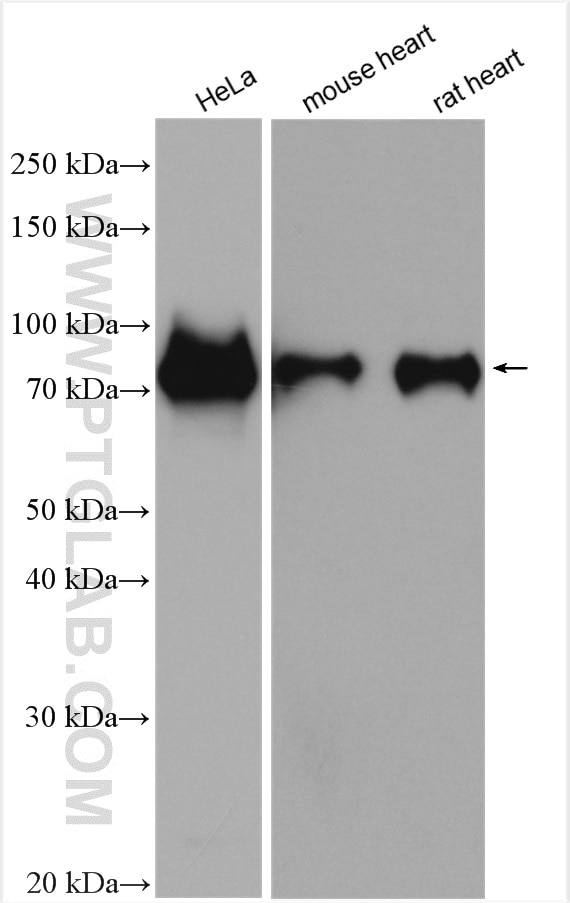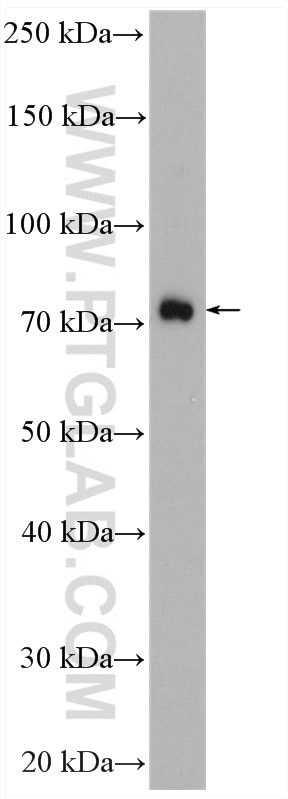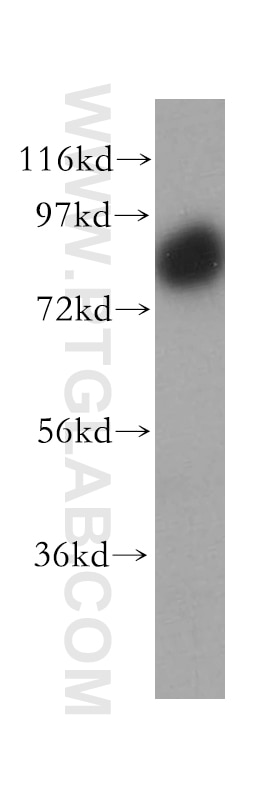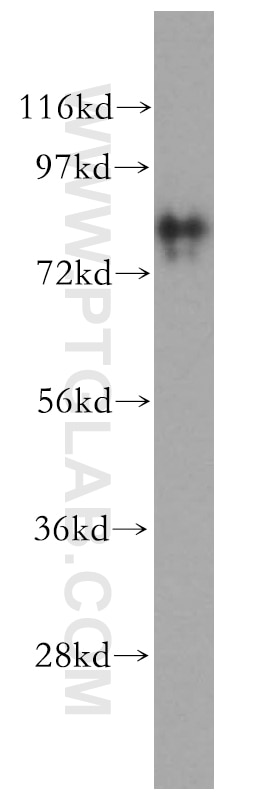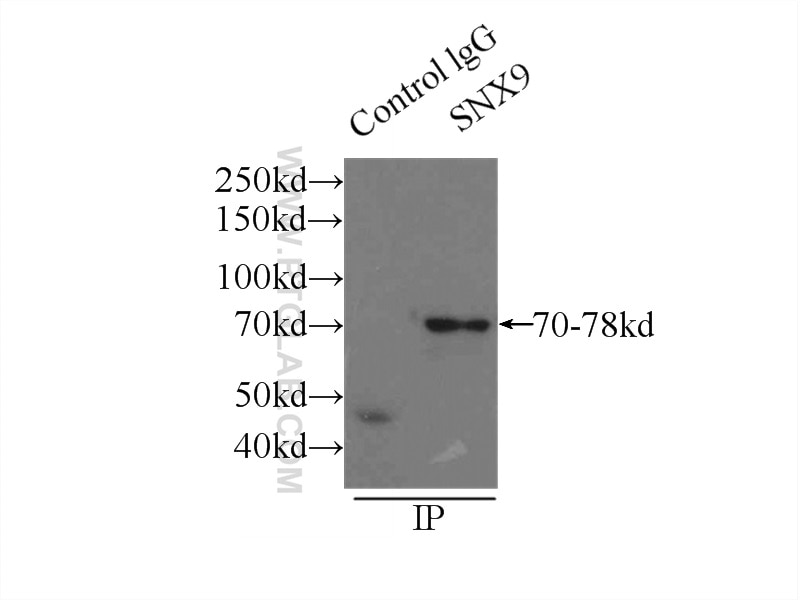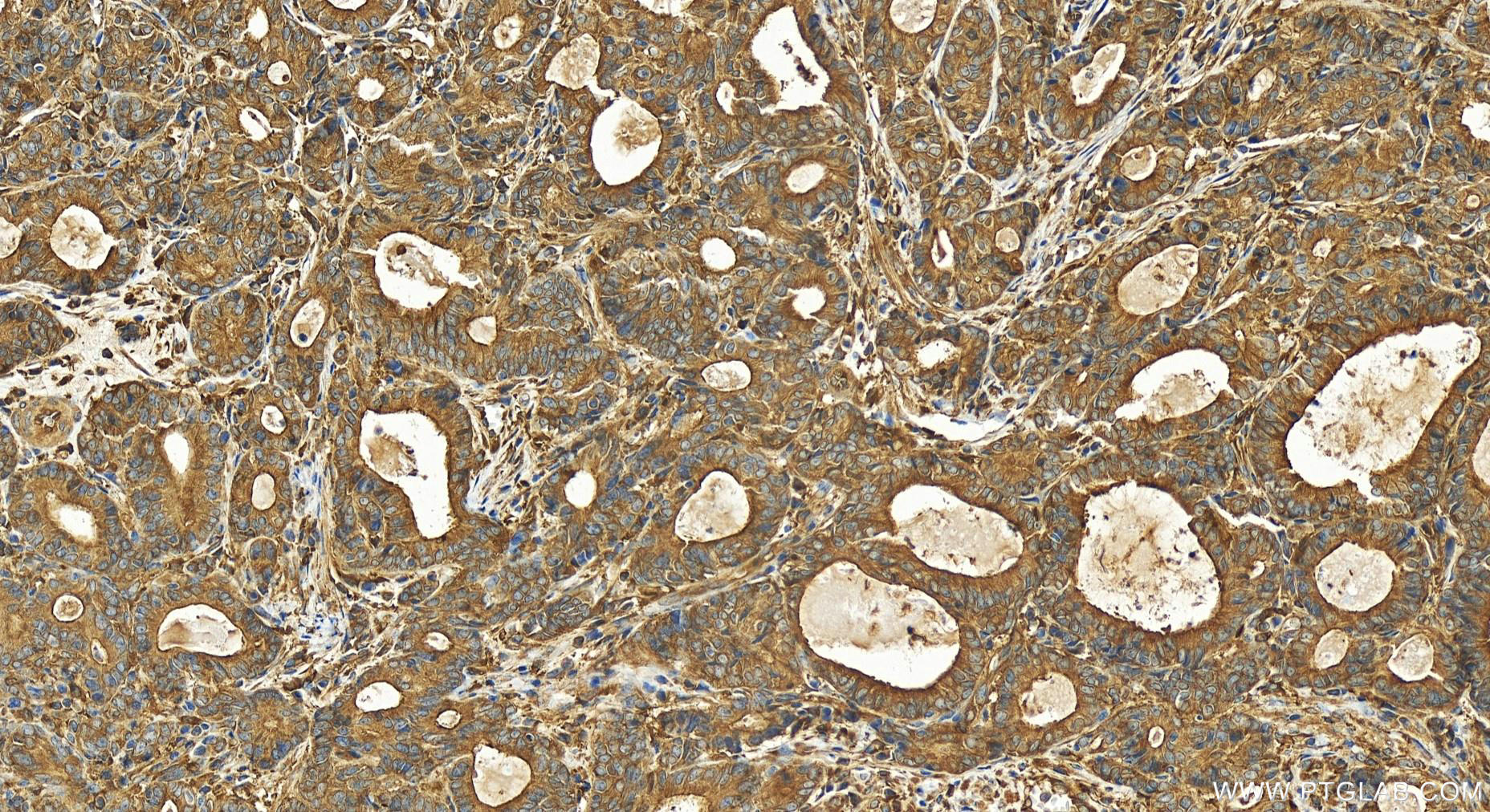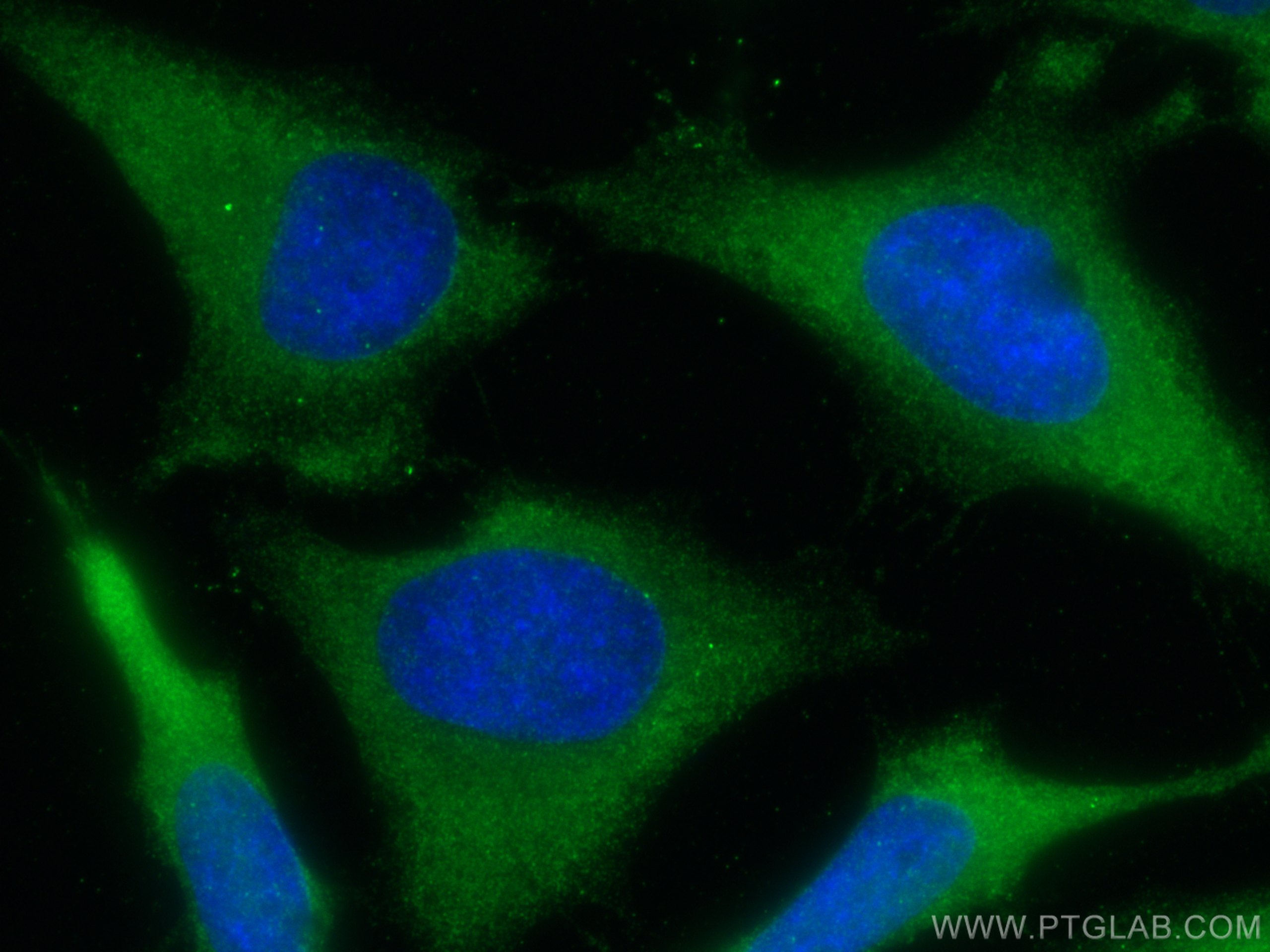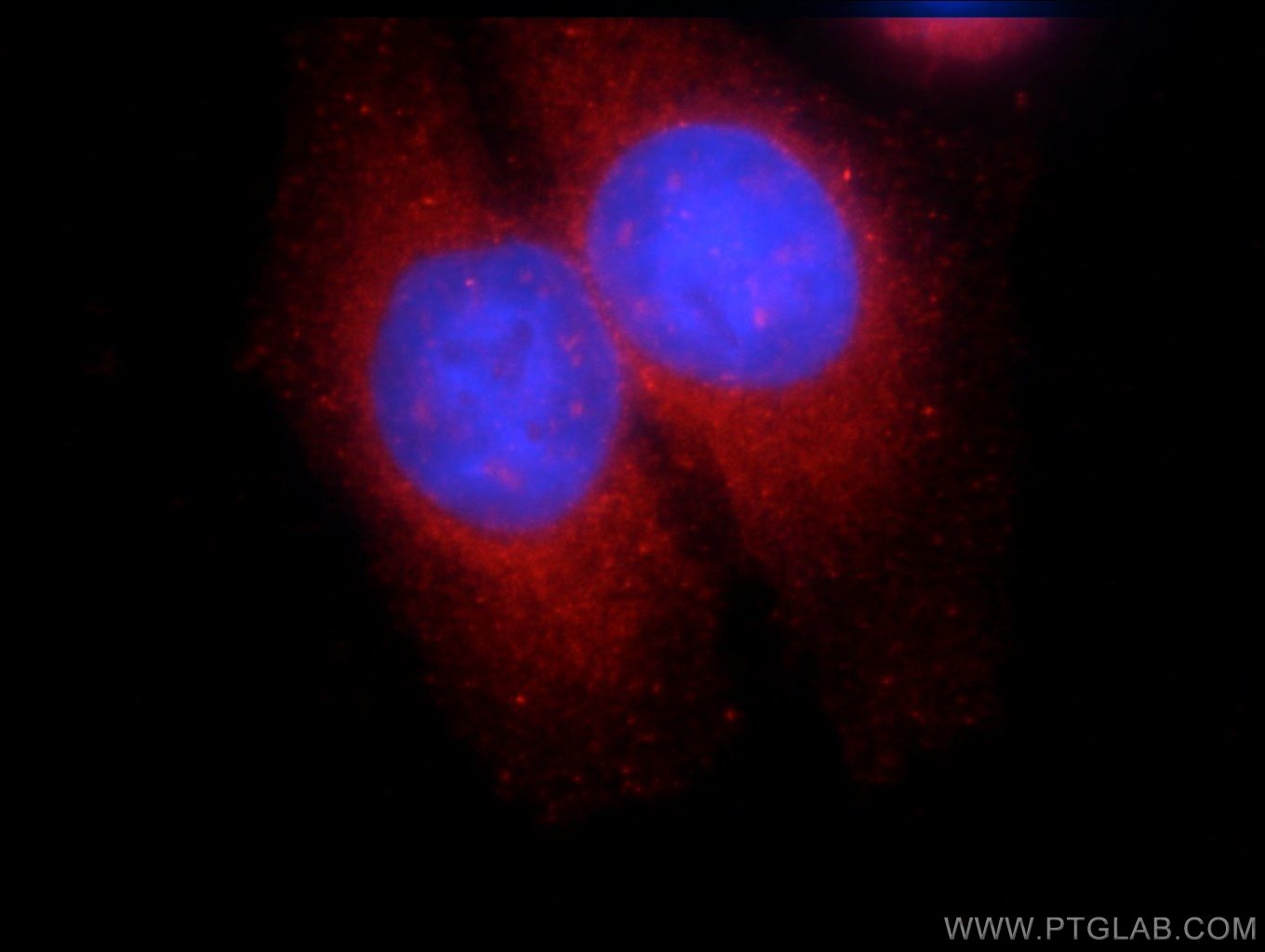Validation Data Gallery
Tested Applications
| Positive WB detected in | HeLa cells, rat heart tissue, human heart tissue, mouse skeletal muscle tissue, mouse heart tissue |
| Positive IP detected in | mouse heart tissue |
| Positive IHC detected in | human stomach cancer tissue Note: suggested antigen retrieval with TE buffer pH 9.0; (*) Alternatively, antigen retrieval may be performed with citrate buffer pH 6.0 |
| Positive IF/ICC detected in | HeLa cells |
Recommended dilution
| Application | Dilution |
|---|---|
| Western Blot (WB) | WB : 1:1000-1:8000 |
| Immunoprecipitation (IP) | IP : 0.5-4.0 ug for 1.0-3.0 mg of total protein lysate |
| Immunohistochemistry (IHC) | IHC : 1:200-1:800 |
| Immunofluorescence (IF)/ICC | IF/ICC : 1:50-1:500 |
| It is recommended that this reagent should be titrated in each testing system to obtain optimal results. | |
| Sample-dependent, Check data in validation data gallery. | |
Published Applications
| KD/KO | See 5 publications below |
| WB | See 13 publications below |
| IHC | See 1 publications below |
| IF | See 2 publications below |
Product Information
15721-1-AP targets SNX9 in WB, IHC, IF/ICC, IP, ELISA applications and shows reactivity with human, mouse, rat samples.
| Tested Reactivity | human, mouse, rat |
| Cited Reactivity | human, mouse, monkey |
| Host / Isotype | Rabbit / IgG |
| Class | Polyclonal |
| Type | Antibody |
| Immunogen | SNX9 fusion protein Ag8440 相同性解析による交差性が予測される生物種 |
| Full Name | sorting nexin 9 |
| Calculated molecular weight | 595 aa, 67 kDa |
| Observed molecular weight | 78 kDa |
| GenBank accession number | BC005022 |
| Gene Symbol | SNX9 |
| Gene ID (NCBI) | 51429 |
| RRID | AB_2286415 |
| Conjugate | Unconjugated |
| Form | Liquid |
| Purification Method | Antigen affinity purification |
| UNIPROT ID | Q9Y5X1 |
| Storage Buffer | PBS with 0.02% sodium azide and 50% glycerol pH 7.3. |
| Storage Conditions | Store at -20°C. Stable for one year after shipment. Aliquoting is unnecessary for -20oC storage. |
Background Information
Sorting nexins are a diverse group of cytoplasmic and membrane-associated proteins that are classified by the presence of a phospholipid-binding motif-the PX domain (PMID:12461558). They are involved in endocytosis and protein trafficking. SNX9 (Sorting nexin-9, also known as SH3PX1) was originally identified as a protein that interacted with the metalloproteinases ADAM9 and ADAM15. It contains a PX and an Sec homology 3 (SH3) domain. SNX9 functions in clathrin-mediated endocytosis and clathrin-independent, actin-dependent fluid-phase endocytosis (PMID: 17609109). On SDS-PAGE, SNX9 migrates at a molecular weight (70-78 kDa) higher than its calculated molecular mass of 67 kDa (PMID: 15299020; 12952949; 18411244; 15703209).
Protocols
| Product Specific Protocols | |
|---|---|
| WB protocol for SNX9 antibody 15721-1-AP | Download protocol |
| IHC protocol for SNX9 antibody 15721-1-AP | Download protocol |
| IF protocol for SNX9 antibody 15721-1-AP | Download protocol |
| IP protocol for SNX9 antibody 15721-1-AP | Download protocol |
| Standard Protocols | |
|---|---|
| Click here to view our Standard Protocols |
Publications
| Species | Application | Title |
|---|---|---|
Immunity cis-B7:CD28 interactions at invaginated synaptic membranes provide CD28 co-stimulation and promote CD8+ T cell function and anti-tumor immunity | ||
Nat Commun Selective packaging of mitochondrial proteins into extracellular vesicles prevents the release of mitochondrial DAMPs.
| ||
Cancer Discov In vivo role of INPP4B in tumor and metastasis suppression through regulation of PI3K/AKT signaling at endosomes. | ||
Dev Cell Mitochondrial-derived vesicles compensate for loss of LC3-mediated mitophagy.
| ||
Proc Natl Acad Sci U S A Loss of FCHSD1 leads to amelioration of chronic obstructive pulmonary disease. | ||
Oncotarget Sorting nexin 9 (SNX9) is not essential for development and auditory function in mice.
|
